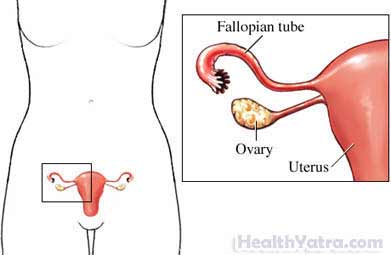Definition
In vitro fertilization (IVF) is a process where sperm and an egg are joined together outside of the body to create an embryo. The embryo can then be inserted into a mother’s uterus.

Reasons for Procedure
IVF is done to help a woman become pregnant when there is difficulty becoming pregnant naturally.
It is most often done when infertility is due to:
- Damaged fallopian tubes
- Ovulation disorders
- Cervical factors
- Male factors, such as low sperm count or poor-quality sperm
Possible Complications
If you are planning to have IVF, your doctor will review a list of possible complications, which may include:
- Still not being able to become pregnant
- Having multiple babies
- Ectopic pregnancy, when the embryo develops outside the uterus
- Anesthesia-related problems
- Short- and long-term adverse effects from fertility drugs
- Ovarian rupture (rare)
Factors that may increase the risk of not conceiving and carrying to term include:
- Women being over age 40 years
- Drinking alcohol
What to Expect
Prior to Procedure
Your doctor will likely do the following:
- Physical and pelvic exam
- Infertility testing for both you and your partner
- Hormone treatments to stimulate production of multiple eggs
- Repeated blood tests and ultrasound exams to monitor the development of multiple egg follicles
- Schedule an appropriate time for harvesting mature eggs—closely timed to coincide with ovulation
Anesthesia
- General anesthesia, spinal anesthesia, or IV sedation may be used during harvesting of the eggs.
- No anesthesia is used during the transfer of the fertilized embryo.
Description of the Procedure
The male, if fertile, refrains from ejaculating for two or three days. He then collects semen through masturbation. Penile scar tissue or other conditions may block the natural release of sperm. If this is the case, a sperm aspiration from the testicles may be done. Sometimes, the man’s sperm can be frozen ahead of time. If the male partner is unable to produce viable sperm, donor sperm may be used. If male sperm counts are low, the chance of successful fertilization may be improved by directly injecting the sperm into the egg. This is called intracytoplasmic sperm injection (ICSI).
Egg Harvesting
An ultrasound-guided technique is often used to harvest the eggs. The ultrasound probe has a needle attached to the end. The instruments are inserted into the vagina. The ultrasound uses sound waves to view the ovaries and the developed egg follicles in the ovaries. The needle punctures the egg follicles. The fluid and eggs are removed through the needle. The fluid is inspected. It is immediately placed in a clean, nutritive culture material. The fluid will be kept in an incubator.
Between 50,000 and 100,000 of the most mobile, healthy sperm are chosen. They are mixed with the harvested eggs. Sometimes, ICSI may be done. It may help to increase the chances of fertilization. The culture dish is kept at normal body temperature inside an incubator for 2-3 days. During that time, sperm are expected to fertilize 60%-80% of the eggs. Once fertilized, early cell division begins and embryos develop.
Transferring Procedure
A certain number of the embryos (usually 1-5) are placed into your uterus (womb). Fewer embryos decrease the chance of multiples (such as twins, triplets). The other embryos may be frozen. They may be saved for future IVF cycles. You may also choose to donate them to other infertile couples.
A catheter tube is inserted into the vagina. It will be threaded through the cervical canal and into the uterus. The embryos are then passed into the uterus. You may be positioned face down with your knees at your chest. A special table that tilts the uterus downward may also be used. These positions allow gravity to help keep the embryos in the uterus for implantation.
How Long Will It Take?
- Harvesting – 30 minutes or less
- Transfer procedure—lasts about 10 minutes
How Much Will It Hurt?
The egg harvesting can be uncomfortable. Anesthesia is given to decrease the discomfort.
Post-procedure Care
At the Care Center
Following egg harvesting, expect to rest at the center for a few hours before going home.
At Home
Following embryo transfer procedure:
- You will probably be able to resume normal activities within a few days.
- Follow the instructions for any medicine given.
- Return in 10-12 days for a pregnancy test.
- If the pregnancy test indicates conception, an ultrasound will be scheduled for a few weeks later. It will be able to see if more than one egg is growing.
- If all is going well, you will start your prenatal care. It is important to go to all of your scheduled appointments.
It can be difficult to wait two weeks for the results. Even if pregnancy occurs, amiscarriage remains a possibility. If pregnancy did not occur, the next attempt should be at least one month later.
Call Your Doctor
Call your doctor if any of the following occurs:
- Signs of infection, including fever and chills
- Foul-smelling vaginal discharge
- Vaginal bleeding
- Abdominal pain or cramping
- Cough, shortness of breath, chest pain, or severe nausea or vomiting
- Any unusual symptoms
If you think you have an emergency, call for medical help right away.
